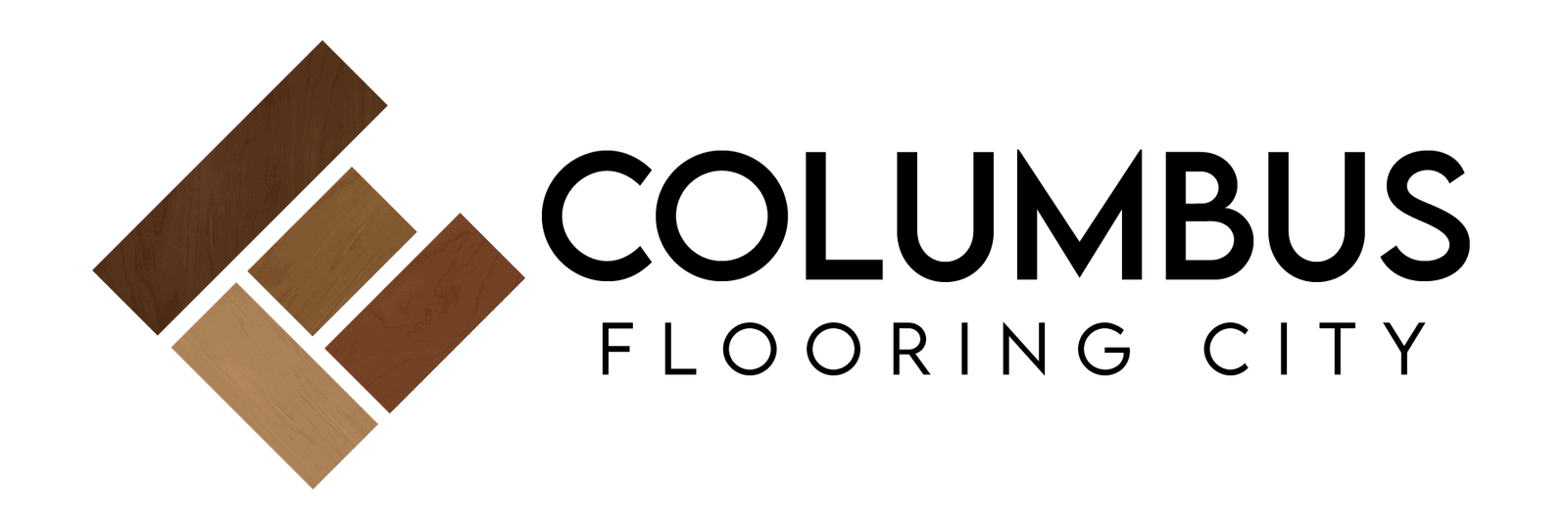With an overwhelming array of options available, it’s crucial to unravel the nuances between popular choices like vinyl and laminate flooring. This comprehensive guide will delve into the intricate difference between vinyl and laminate flooring, encompassing appearance, cost, water resistance, durability, installation, care, lifespan, comfort & sound, resale value, and environmental impact.
You’ll be more equipped to make a choice that fits your requirements and tastes if you are thoroughly aware of these issues.
So let’s embark on a journey through the realm of flooring, unraveling the essence of vinyl and laminate and unlocking the ideal flooring solution for your space.
Difference between Vinyl and Laminate Flooring
Vinyl and laminate flooring are popular options with distinct advantages and characteristics. Understanding the difference between vinyl and laminate flooring is crucial in deciding your flooring needs. Let’s explore the key factors that set vinyl and laminate flooring apart.
Appearance
Laminate Flooring:
A tribute to fine craftsmanship, laminate flooring is renowned for its ability to faithfully reproduce the natural beauty of hardwood, stone, ceramics, and other materials. Through cutting-edge printing technology, laminate captures these materials’ intricate details, vibrant colors, and textures, offering diverse designs to suit any interior aesthetic. The embossed textures add depth and realism, elevating the overall allure and elegance of the flooring.
Vinyl Flooring:
While vinyl flooring may not achieve the same level of realism as laminate, it has made remarkable strides in replicating the allure of wood, stone, and tile. Luxury vinyl planks (LVP) boast deeper embossing, resulting in a genuinely authentic wood-like appearance. The versatility of vinyl flooring is undeniable, offering a wide selection of patterns and designs to cater to diverse interior styles and preferences.
Cost
Laminate Flooring:
One of the remarkable advantages of laminate flooring lies in its affordability. Falling within a moderate price range, laminate presents an excellent option for homeowners and businesses seeking budget-friendly flooring solutions. The cost varies based on quality, thickness, and design intricacy. Despite its affordability, laminate flooring doesn’t compromise aesthetics or durability, making it a popular choice among those seeking cost-effective elegance.
Also, read our guide to laminate flooring installation cost here.
Vinyl Flooring:
When it comes to affordability, vinyl flooring emerges as a frontrunner. With a plethora of options available, including luxury vinyl planks and vinyl sheets, vinyl provides an attractive solution for individuals seeking visually appealing flooring without burdening their financial resources. Its budget-friendly nature empowers homeowners to transform their spaces without compromising on style or quality.
Water Resistance
Laminate Flooring:
While laminate flooring exhibits a certain level of water resistance, it falls short of complete waterproofing. The core layer of laminate comprises wood-based materials, rendering it vulnerable to water damage if exposed for extended periods. Laminate can withstand occasional spills and splashes, but it is vital to promptly clean up any liquid spills to prevent potential issues such as warping or swelling.
Vinyl Flooring:
When it comes to water resistance, vinyl flooring takes the crown. It’s synthetic composition and non-porous surface make it highly resilient to moisture, even in areas prone to spills or high humidity. Vinyl flooring shines in environments such as bathrooms, kitchens, and basements, where water resistance is critical. With vinyl flooring, you can enjoy the peace of mind of knowing your flooring can weather everyday water-related challenges.
Durability
Laminate Flooring:
Durability is a hallmark of laminate flooring. A protective wear layer shields the laminate surface from scratches, stains, and fading, ensuring it can withstand heavy foot traffic while preserving its flawless appearance. However, it’s worth noting that laminate may be more susceptible to dents and indentations compared to vinyl due to its core layer, which comprises wood-based materials.
Vinyl Flooring:
When it comes to resilience, vinyl flooring stands tall. Its robust and resilient composition empowers it to combat high-traffic areas’ wear and tear easily. Vinyl flooring is resistant to scratches, stains, and dents, ensuring a durable and visually captivating option. Whether you have children or pets, vinyl flooring is a reliable companion that can withstand the demands of daily life while maintaining its allure.
Installation
Laminate Flooring:
Thanks to its floating floor system, installing laminate flooring is often a breeze. The individual planks or tiles are not directly attached to the subfloor; instead, they are installed over a foam or cork underlayment. The planks typically employ a click-lock or tongue-and-groove system, facilitating straightforward and precise installation. Moreover, laminate can be installed over various floors, such as concrete, plywood, or even existing vinyl, offering flexibility and convenience.
Read our common mistakes when laying laminate flooring to know everything you need to know to lay down your laminate flooring properly.
Vinyl Flooring:
When it comes to installation, vinyl flooring offers unparalleled flexibility. It can be glued directly to the subfloor using adhesive, creating a permanent bond that ensures longevity. Alternatively, vinyl can be installed as a floating floor, where the planks or tiles are joined using a click-lock or loose lay mechanism. Vinyl’s flexibility shines through, allowing it to be installed in areas with uneven subfloors, showcasing its versatility in meeting diverse installation requirements.
Care
Laminate Flooring:
Maintaining laminate flooring is a relatively straightforward affair. Regular sweeping or vacuuming removes dirt and debris, while occasional damp mopping with a manufacturer-approved cleaner ensures a clean, stain-free surface. It is essential to avoid excessive moisture, as standing water can seep into the seams and cause damage. With proper care, laminate flooring can retain its beauty and functionality for an extended period.
Vinyl Flooring:
The care routine for vinyl flooring is minimal and hassle-free. Regular sweeping or vacuuming ensures that dirt and debris are promptly removed from the surface, maintaining its allure. Spills and stains can be effortlessly wiped away with a damp cloth, saving precious time and effort. Unlike laminate, vinyl flooring is highly moisture-resistant, making it suitable for wet areas. By adhering to the manufacturer’s guidelines regarding cleaning products and methods, you can preserve the longevity and aesthetics of your vinyl flooring.
Lifespan:
Laminate Flooring:
With proper care and maintenance, laminate flooring boasts an impressive lifespan. The longevity of laminate varies depending on factors such as quality, thickness, and level of foot traffic. On average, laminate flooring can be expected to endure between 15 to 25 years, making it a durable and long-lasting flooring solution.
Vinyl Flooring:
Vinyl flooring is renowned for its exceptional durability and extended lifespan. High-quality vinyl can withstand time and endure heavy use without compromising its visual appeal. With proper care, vinyl flooring can easily surpass 20 to 30 years or more, providing a reliable and resilient choice that will continue to shine brightly.
Comfort & Sound
Laminate Flooring:
Laminate flooring offers a firm and stable surface underfoot. While underlayment can be added for additional cushioning, laminate may lack the softness and warmth of materials like carpet. Regarding sound absorption, laminate flooring can produce a hollow sound when walked upon. However, underlayment can help minimize noise, ensuring a more peaceful environment.
Vinyl Flooring:
When it comes to comfort and sound, vinyl flooring takes the lead. Its resilient and cushioned surface provides enhanced comfort, particularly for individuals who spend extended periods standing or walking. Vinyl flooring absorbs sound more effectively, resulting in a quieter environment when walking on it. The incorporation of underlayment further elevates comfort levels and minimizes noise transmission, creating a serene and cozy atmosphere.
Resale Value
Laminate Flooring:
While laminate flooring can contribute to the visual appeal of a space, its impact on resale value may not be as significant as that of hardwood or other high-end flooring materials. However, a well-maintained and updated laminate floor can still enhance the overall aesthetic of an interior, attracting potential buyers who appreciate its durability and stylish appearance.
Vinyl Flooring:
Regarding resale value, vinyl flooring may not have the same allure as premium options like hardwood. However, it can still add value to a well-maintained and updated property. Vinyl flooring’s durability and water resistance can be appealing factors for potential buyers, making it a practical choice that can positively impact the overall impression of a space.
Environmental Impact
Laminate Flooring:
Laminate flooring is often considered an eco-friendly option. Many laminate manufacturers utilize recycled wood fibers in their production process, minimizing waste and promoting sustainable resources. Additionally, laminate flooring can often be recycled at the end of its lifespan, reducing its environmental footprint. It is crucial to keep in mind nonetheless that some laminate materials could have chemicals or adhesives that release volatile organic compounds (VOCs). Opting for low VOC or eco-friendly laminate options can mitigate potential environmental concerns.
Vinyl Flooring:
The environmental impact of vinyl flooring is a multifaceted topic. Vinyl is a synthetic material that is not biodegradable, raising concerns about its long-term disposal. However, significant strides have been made in producing vinyl flooring with lower VOC emissions. Some manufacturers also offer vinyl products made from recycled materials, reducing reliance on virgin resources. When selecting vinyl flooring, look for products certified by reputable eco-labels to ensure a more environmentally conscious choice.
Conclusion
The difference between vinyl and laminate flooring lies in their strengths and advantages. While laminate flooring offers a wide range of design options and a moderate cost, vinyl flooring excels in water resistance, affordability, and versatility. You may confidently select the one that best satisfies your requirements and tastes by being aware of these distinctions. Whether you prioritize laminate’s timeless elegance or vinyl’s practicality, both options provide durable and visually captivating flooring solutions for your space. So, decide wisely and enjoy the transformative power of the right flooring choice.
FAQs
Which is better, laminate or vinyl flooring?
The choice between laminate and vinyl flooring depends on various factors, including personal preferences, water resistance needs, durability requirements, budget considerations, and installation flexibility.
How do you differentiate between laminate and vinyl flooring?
Laminate flooring feels rigid, while vinyl flooring offers more flexibility and cushioning. Laminate often has a wood-like texture and visible seams, while vinyl has a smoother surface and a more uniform appearance.
Does vinyl flooring scratch easier than laminate?
No, vinyl flooring is generally more resistant to scratches than laminate due to its protective wear layer.
What are the disadvantages of vinyl plank flooring?
Some disadvantages of vinyl plank flooring include limited design options, potential off-gassing from adhesives, and a lower resale value compared to premium flooring materials like hardwood.

